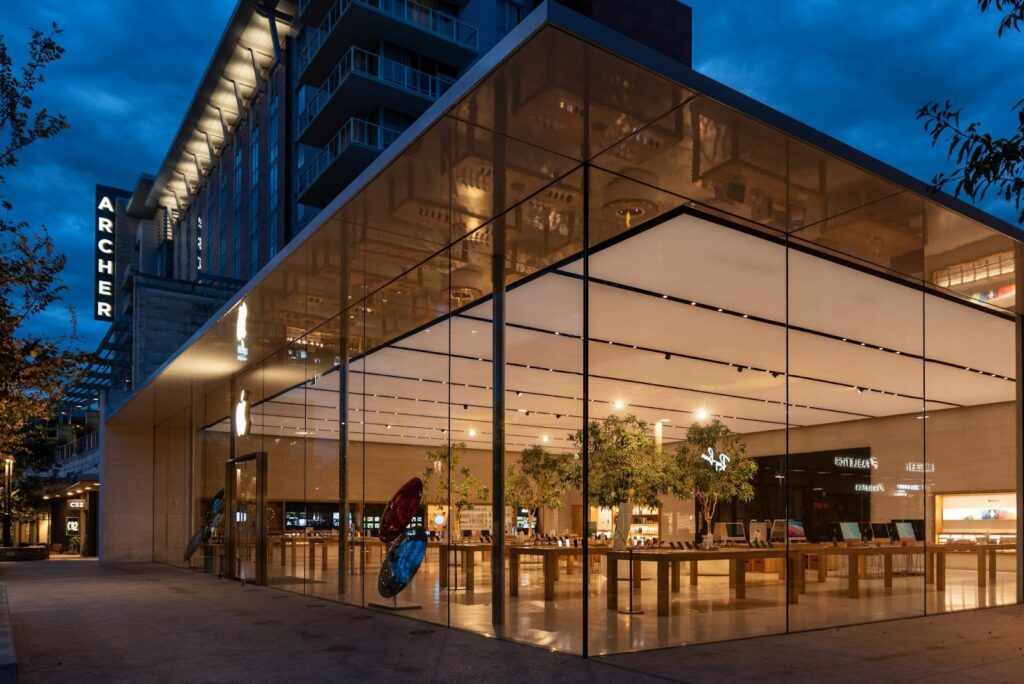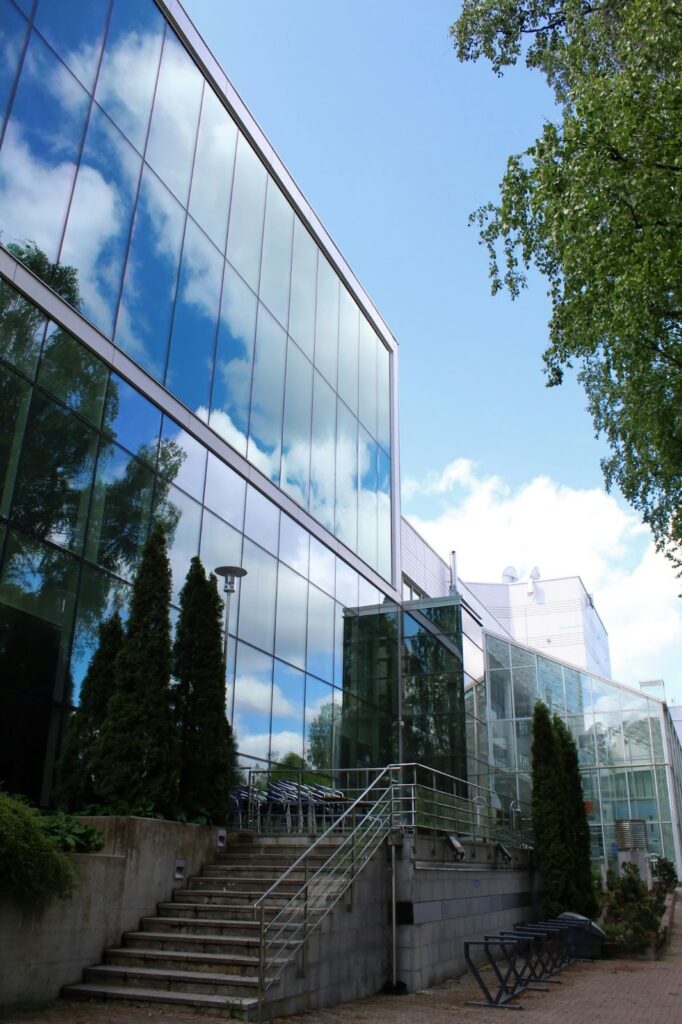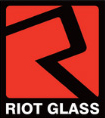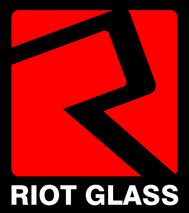Written By: Brad Campbell | October 15, 2025
Not all commercial glass is created equal. From standard annealed glass to advanced security glazing, each type offers different levels of strength, safety, and protection. Here’s what you need to know before choosing the right glass for your building.
When it comes to choosing the right commercial glass, there’s no one-size-fits-all solution. Each type has its own unique advantages, drawbacks, and ideal use cases. Understanding these differences is essential for making informed decisions about safety, performance, and budget.
Below is a comparison of five main types of commercial glass and glazing, outlining what each is best suited for:
Annealed glass is the most basic type of glass, commonly used in both commercial and residential applications. When you hear someone referring to “standard” or “regular” glass, this is what they’re talking about.
During fabrication, annealed glass panels go through a special slow-cooling process, known as “annealing.” This process relieves internal stress and improves the overall strength of the glass compared to older types of window and door glass, but it’s important to understand that annealed glass is still the weakest type of commercial glass on the market.
Not only is it incredibly easy to break annealed glass, but when it does break, it shatters into sharp, jagged shards that can fly dangerously inwards and cause serious injury to anyone inside the building. That’s why it’s always preferable to use a stronger type of glass in any commercial application, especially when safety and security are top concerns.

Tempered glass is a type of safety glass that’s used to mitigate broken glass hazards in commercial properties. It starts its life out as annealed glass, but undergoes an additional “tempering process” that involves heating it up to 1150 degrees Fahrenheit, then rapidly cooling it.
Tempering serves to greatly strengthen the glass, resulting in panels that are approximately 4 to 5 times stronger than standard glass. However, the main purpose of tempering is to change the way the glass breaks. Instead of shattering into multiple large, dangerous shards, tempered glass essentially crumbles into small, granular pieces that are virtually harmless.
Because of its increased strength and the way in which it breaks, tempered glass is frequently used in architectural glass wherever human safety is a concern. Whether it’s a glass building facade or glass office partitions, tempered glass greatly reduces the risk of injury in the event of accidental or intentional breakage.
Laminated glass is the first type of glass on our list that can be considered “commercial security glass.” While there are many different types of laminated glass on the market, with varying levels of strength, they all provide some level of impact resistance, making laminated glass a suitable alternative to tempered glass when you want a higher level of security.
Laminated security glass consists of two or more layers of strengthened glass bonded together by a thermoplastic interlayer, which holds the glass together in the event of breakage. So, even if a strong enough impact or a sustained attack causes the glass to crack and spall, it won’t shatter or fall apart — it retains its shape and remains a barrier.
Depending on its specific composition, laminated security glass can be up to 100 times stiffer and five times stronger than other types of commercial glass.

Perhaps counterintuitively, the next type of commercial security glass on our list isn’t actually glass at all, but rather a type of plastic: polycarbonate.
Polycarbonate-based window and door glazing is a specialized type of non-glass security glazing that, thanks to modern processes and materials, looks and feels very much like standard commercial glass, yet is virtually unbreakable.
In recent years, polycarbonate security glazing has been rapidly gaining popularity across industries for its ability to stop everything from after-hours burglary and smash-and-grab theft to vandalism and looting.
Because polycarbonate is much lighter than glass, it’s also incredibly easy to retrofit over existing glass, making it ideal for reinforcing glass storefronts, school windows and doors, and other commercial glass surfaces that would be prohibitively expensive and time-consuming to fully replace.
Last, but certainly not least, we have glass-clad polycarbonate (GCP). This type of commercial security glass combines laminated glass on the exterior (attack side) and polycarbonate glazing on the interior (safe side), gaining the strengths and benefits of both solutions.
The glass outer layer provides superior scratch resistance and a hard surface that can withstand repeated impacts, while the polycarbonate backing adds flexibility and helps prevent penetration. This combination gives glass-clad polycarbonate exceptional performance against forced entry, ballistic, and blast threats.
Glass-clad polycarbonate is commonly used in high-security applications such as government buildings, banks, high-risk retail stores, schools, and C-Suite executive offices,anywhere that requires a balance between aesthetics and robust protection.
While it’s one of the more costly options and may require full glass replacement, GCP offers unmatched peace of mind. It’s a long-term investment in safety, resilience, and durability, making it the preferred choice for organizations that can’t afford to compromise on security.
| Type of Glass | Description | Pros | Cons | Relative Cost | Ideal Applications |
| Annealed Glass | Standard glass cooled slowly to relieve internal stress | Inexpensive; easy to cut and fabricate | Weakest type; breaks into dangerous shards; poor security | $ (Lowest) | Decorative glass, low-risk areas |
| Tempered Glass | Heat-treated glass that’s 4-5x stronger than annealed | Safer break pattern; durable; widely available | Cannot be cut after tempering; not security-rated | $$ | Doors, windows, facades, interior glass walls, safety glazing |
| Laminated Glass | Two or more glass layers bonded with a plastic interlayer | Holds together on impact; resists breakage; stronger security | Heavier and costlier than tempered; may need replacement after strong impact | $$$ | Storefronts, skylights, schools, offices, and retail spaces needing added security |
| Polycarbonate Glazing | Transparent thermoplastic used as non-glass security glazing | Virtually unbreakable; lightweight; easy to retrofit; clear visibility | More prone to scratching than glass; can yellow over time without proper coating | $$$$ | Retail storefronts, schools, government buildings, and high-risk entry points |
| Glass-Clad Polycarbonate (GCP) | Layers of laminated glass bonded to polycarbonate backing | Combines hardness and flexibility; impact-, ballistic-, and blast-resistant; long lifespan | Highest cost; heavier than pure polycarbonate | $$$$$ (Highest) | Banks, government facilities, schools, police stations, and any building needing maximum protection |
Riot Glass offers two proprietary lines of commercial security glazing systems designed to meet different threat levels and budgets:
Both systems are engineered for maximum durability, retrofit compatibility, and long-term performance,giving you the peace of mind that your glass openings are reinforced against forced entry, vandalism, and ballistic threats, without compromising visibility or aesthetics.
Riot Glass AP-Series is a virtually unbreakable polycarbonate glazing system that provides superior protection against common forced entry methods, such as blunt-force impacts from tools like sledgehammers, pry bars, or bricks.
Despite being a non-glass material, AP-Series panels maintain excellent optical clarity and a professional glass-like appearance, making them ideal for storefronts, schools, and other public-facing properties.
This series can be retrofitted directly into existing framing systems without replacing the entire window or door unit, minimizing downtime and installation costs. The AP-Series is the perfect balance between affordability, strength, and easy integration, a reliable choice for properties looking to deter crime and damage without the expense of full window replacement.
For environments that demand the highest level of protection, Riot Glass RG-Series delivers elite performance through a layered glass-clad polycarbonate construction. These systems combine a hard, laminated glass exterior with a tough polycarbonate backing, creating a barrier capable of withstanding sustained attacks, ballistic threats, and even blast impacts.
RG-Series glazing provides the best of both worlds, the scratch resistance and aesthetic appeal of real glass with the virtually unbreakable resilience of polycarbonate. It’s an ideal solution for government facilities, banks, schools, and high-risk commercial sites that cannot afford any compromise on security.

The strongest and most impact-resistant option is glass-clad polycarbonate. It combines laminated glass with a polycarbonate backing, offering superior resistance to forced entry, ballistic threats, and blasts.
Tempered glass is heat-treated to increase its strength and safety upon breakage, while laminated glass uses multiple layers bonded by an interlayer that keeps it intact even when cracked. Laminated glass offers higher security.
Yes. Polycarbonate glazing like Riot Glass’s AP-Series can be retrofitted over or installed in place of existing glass, allowing property owners to cost-effectively upgrade security.
Modern polycarbonate glazing is optically clear and virtually indistinguishable from glass to the naked eye. Many products, like Riot Glass AP-Series glazing, include abrasion-resistant coatings to maintain clarity over time.
GCP offers the ultimate balance between aesthetics, security, and longevity. It provides the strengths of both laminated security glass and polycarbonate, making it ideal for high-risk or high-security properties.
Not significantly. Both laminated glass and polycarbonate glazing are designed to maintain excellent transparency and allow ample daylight through, preserving the look and feel of glass storefronts and offices.
With proper installation and maintenance, high-quality systems like Riot Glass’s AP-Series and RG-Series can last decades. They’re built to withstand repeated impact, UV exposure, and weathering without losing strength or clarity.
It depends on your goals. For basic safety and break resistance in lower-risk environments, tempered or laminated glass works well. For maximum protection against forced entry or ballistic threats, polycarbonate or glass-clad polycarbonate systems like those from Riot Glass are the best options.

Selecting the right type of commercial glass comes down to understanding your property’s security needs, aesthetic goals, and budget. From strengthened tempered and laminated glass to advanced polycarbonate and GCP security glazing systems, today’s options make it possible to achieve the perfect balance of safety, clarity, and performance.
Riot Glass specializes in providing tailored solutions for every threat level, whether you’re protecting a retail storefront from theft or fortifying a government facility against riots and ballistic attacks. With expert installation and precision-engineered materials, Riot Glass ensures your windows and doors aren’t just clear. They’re secure, resilient, and built to last. Contact us today for a free consultation.

HOW CAN WE HELP YOU?
